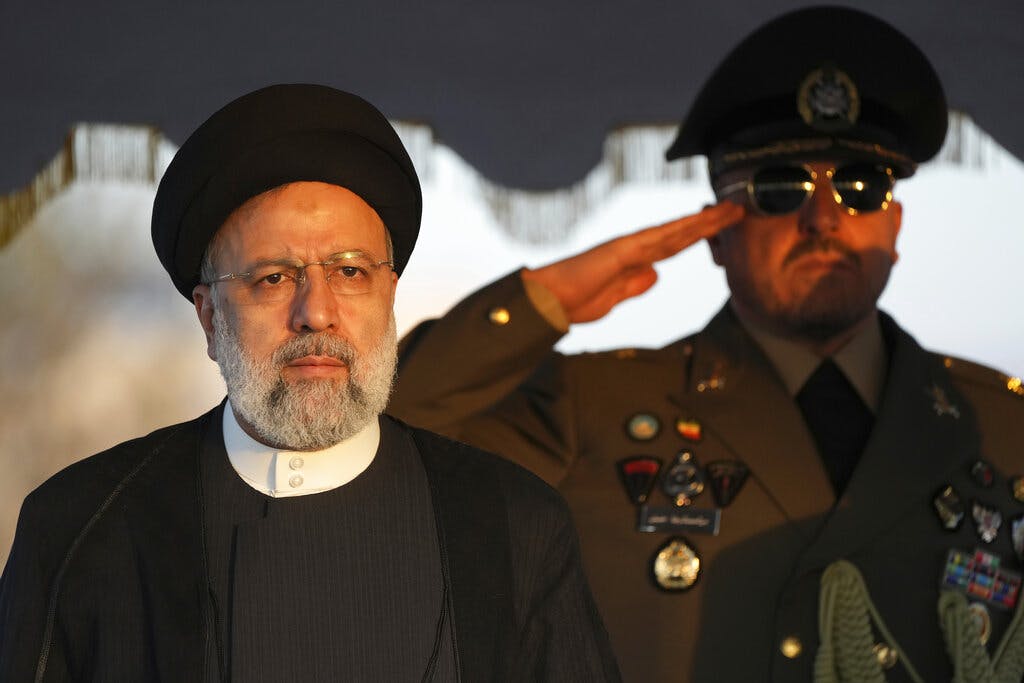On Biden’s Watch, America’s Top Adversaries Set Up Shop on Our Doorstep
The report that Beijing is purchasing a facility on Cuba to use in spying on America follows moves in the region by Russia and the Islamic Republic of Iran.

Updated at 6:05 P.M. E.D.T.
As President Biden courts the hemisphere’s leftist leaders, America’s top adversaries — Communist China, revanchist Russia, and the Islamic Republic of Iran — are setting up shop on America’s doorstep.
The Wall Street Journal reports today that while Washington is easing sanctions on the Cuban regime, Beijing is paying Havana billions of dollars to purchase a facility from which to electronically eavesdrop on America’s southeast, where many military installations are situated.
The only incentive for Beijing to cut the reported secret deal seems to be espionage, as the impoverished island provides no serious investment opportunities beyond its proximity to America’s shores. The deal comes as relations tighten between countries intent on weakening America’s global position.
The White House and the Cuban regime pushed back against the Journal’s report. “ It’s no surprise the Chinese are exploiting President Biden’s weakness and appeasement, and it’s no surprise the Biden administration is downplaying the significance of this story,” Senator Cruz of Texas told the Sun. “This administration has enabled anti-American forces to take control of countries across the Western Hemisphere, with catastrophic results for American national security.”
Earlier, the Sun reported that Russia is making several deals to prop up the Cuban economy, as Moscow boosts its relations with Havana, and President Raisi of Iran next week is expected to travel to Cuba, Nicaragua, and Venezuela. “Might a visit to Brazil also be in the cards?” the Americas director at Center for Strategic and International Studies, Ryan Berg, tweets.
The Chinese Communist Party’s “spy facility in Cuba reminds us we are in a New Cold War that, once again, has come to our doorstep,” the chairman of the House select committee on China, Mike Gallagher, tells the Sun in a statement. “If it weren’t already clear, our ardent diplomatic pursuit of the CCP in the aftermath of the spy balloon has only emboldened CCP aggression.”
“We must make it clear that, as President Kennedy said over sixty years ago on the eve of a previous crisis in Cuba, ‘one path we shall never choose, and that is the path of surrender or submission,’” Mr. Gallagher added. Washington must take “long-overdue actions,” he said, including ending Huawei’s export licenses, increasing investment in Taiwan, and preventing Chinese land purchases near military bases.
The Journal’s report is “not accurate,” the national security council’s spokesman, John Kirby, told MSNBC. “We have been concerned since day one of this administration about China’s influence activities around the world, certainly in this hemisphere and in this region. We’re watching this very closely and we have and will continue to take steps to mitigate any potential threats that those activities might pose.”
Havana also denied the accuracy of the Journal’s report, which Cuba’s deputy foreign minister, Carlos Fernández de Cossío, called “totally mendacious and unfounded,” the Hill reported.
Congressional critics expressed concern that Beijing is escalating its “aggressive behavior by setting up a spy base 90 miles from America’s shores in Cuba,” as the chairman of the House Foreign Affairs Committee, Michael McCaul, said in a statement. “It is extremely shameful that the Biden administration continues begging the CCP for talks while the CCP’s malign actions speak for themselves.”
Beijing under Chairman Xi increasingly sees America as an adversary and is attempting to lure leaders in the hemisphere to its side in the hope of weakening their ties with America. Washington nevertheless is “not asking anyone to choose between the United States and China,” Secretary Blinken said Thursday at a Riyadh press conference alongside his Saudi counterpart.
Mr. Blinken is planning a trip to Beijing sometime this month, hoping to ease tensions in the aftermath of its February balloon flight over America. The trip follows an icy encounter in Singapore between Secretary Austin and his Chinese counterpart, General Li Shangfu, who refused to meet him. Beijing has not yet confirmed whether Mr. Xi would meet with Mr. Blinken when he arrives at Beijing.
Despite numerous slights, Mr. Biden recently said that a thaw in relations between the countries is coming “very soon.” He downplayed the “silly balloon” that flew over military bases across America. The CIA director, William Burns, went recently on a secret trip to Beijing, and the national security adviser, Jacob Sullivan, conferred with Chinese officials at Vienna.
The Islamic Revolutionary Guards Corps, meanwhile, is amping up its activity in the hemisphere as well. It has established bases in Venezuela, and last summer an IRGC-linked plane carrying Iranian and Venezuelan nationals was held in Argentina on suspicion of terror-related activities. Defying Washington’s pleas, Buenos Aires in short order allowed the crew to leave the country.
The Biden administration is nevertheless praising the left turn in Latin America, even as some of the region’s top leaders increasingly resurrect old “Yankee go home” slogans and attempt to unite — with Beijing’s backing — behind an anti-America agenda.
Washington has eased Trump-era restrictions on Cuba, and widened consular services on the island. After Mr. Biden hosted President Lula da Silva at the White House in February, the leftist Brazilian tightened relations with Havana and Caracas and blamed America for the deteriorating of the communist-managed economies there.
A spy shop in America’s neighborhood is but the most recent Chinese incursion into the hemisphere. Beijing is investing in several spots in the Americas where it has commercial interests, but it also seems to foresee a military confrontation. As in the 1960s, that is a perilous situation that calls for a more muscular response than Washington has mustered so far.

